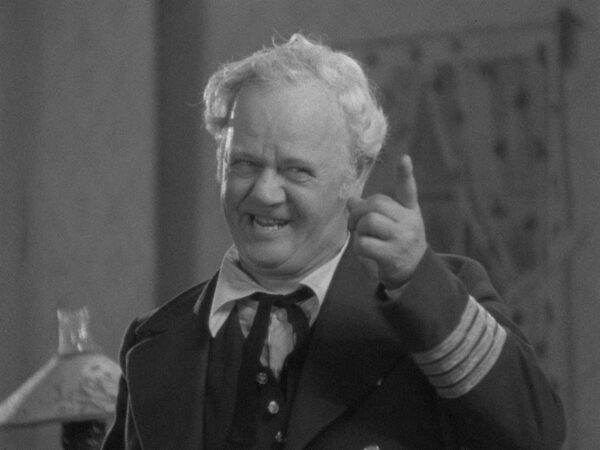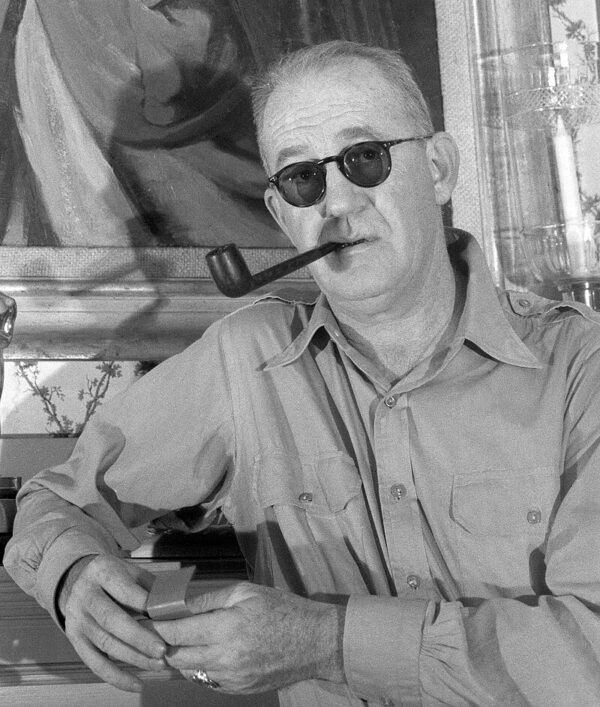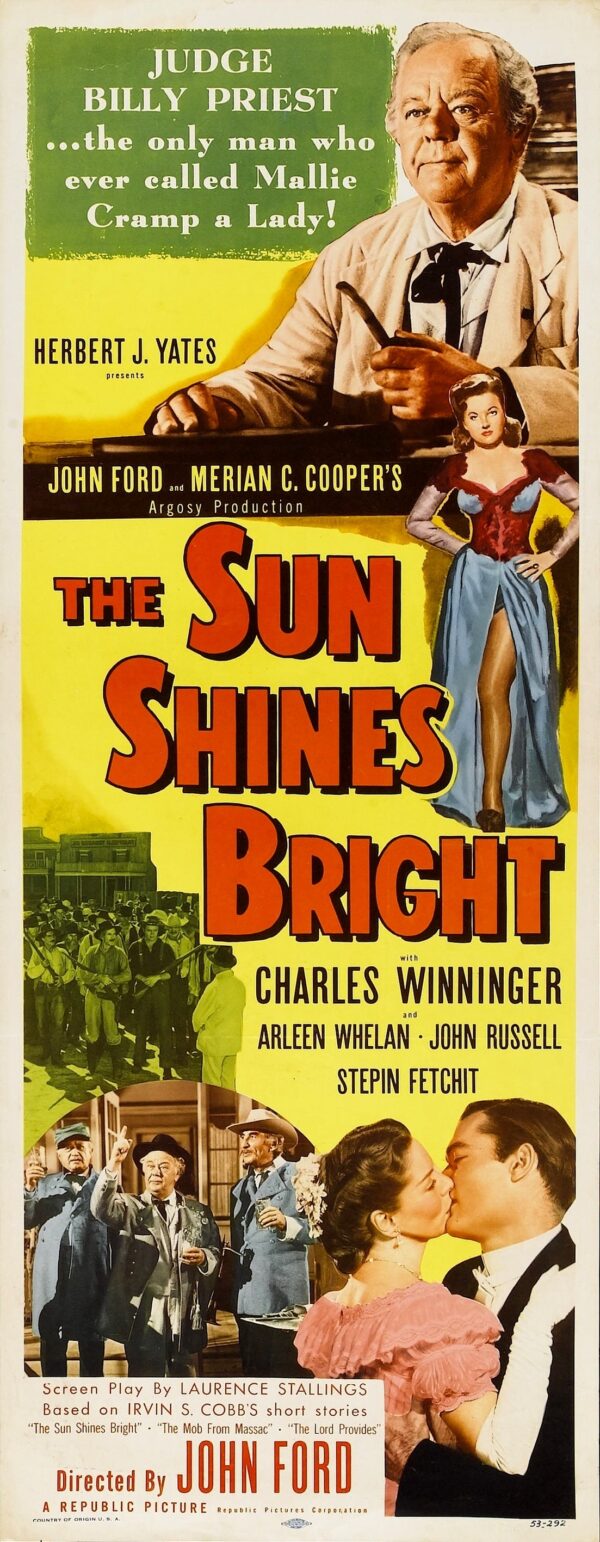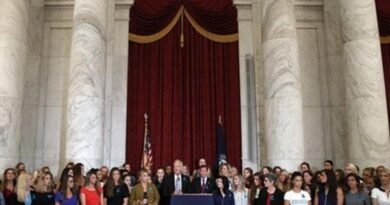‘The Sun Shines Bright’: No Ordinary Judge
NR | 1 h 32 min | Drama, Comedy | 1953
On screen, judges usually sit, speak little, summon people to their bench or chamber, and are rarely seen outside court. But Judge Priest (Charles Winninger) is no ordinary judge. He stands and talks and walks a lot, especially outside court.
Priest presides over a town riven with class and color prejudices, where he’s seeking re-election. He’s bound by his judicial duty to adjudicate matters in court but bound by his conscience to settle others out of court. But townsfolk (would-be voters) and his electoral rival Maydew (Milburn Stone) are judging Priest’s every step. Will he practice the values of law, order, and justice that he professes?
Meanwhile, two persons who return to town after years away test Priest’s resolve, but differently: courageous Ashley Corwin (John Russell) and an unnamed prostitute (Dorothy Jordan), who turns out to be the mother of Corwin’s love interest, schoolteacher Lucy (Arleen Whelan). Corwin towers in defending the defenseless, and in what would have been a challenge for the 6-foot-3-inch actor, he kneels to say a prayer.

Caricaturish opening scenes, including of Priest playing the trumpet to someone’s banjo, aren’t meant to be viewed literally, but as a comical sketch of Priest, more at home with his glass of whisky than with his gavel. He respects tradition, willingly honoring a color guard for a rival political camp. But he thumbs his nose at pomposity devoid of a humane center. And he won’t give over his verdicts to the highest bidder.
Winninger undercuts his perfect gestures—speeches, oaths, and flag-bearing—with the imperfect. His cheeks billow at a trumpet that doesn’t blow on the first try. He keeps asking for medicine to get his “heart started,” but his is the heart that beats loudest here.
Stone plays an unsavory rival but lacks the screen time to seriously challenge Priest. That’s left to Grant Withers, who excels as county bully, Buck Ramsey.
In a scene that’s a lesson in courage, Priest stands up to Ramsey’s mob out to lynch a young black man Woodford (Elzie Emanuel), falsely accused of rape. When law officers bring Woodford in on grounds that bloodhounds chased him down, Priest suspects a cover-up by the real culprit and, fearing for Woodford’s life, takes him into protective custody. He makes it clear that sometimes a man is running away from lawlessness not the law; his running doesn’t mean the law must blindly give him chase.
Standing Up to Injustice
Marquee Western movie posters often sport 6-and-a-half-feet tall gunmen. All of 5 feet and 9 inches, chubby Winninger wouldn’t scare a cat, even with a loaded .45 Colt. Umbrella in one hand, smoking pipe in another, he’s more like a Santa-for-rent than a sheriff. Yet he stands alone against a gang that isn’t too different from a pack of bloodhounds.
Priest doesn’t make up his brand of justice on the hoof; instead, he takes his court out to the streets, serving justice where it needs to be. His aide, anxious about the mob, suggests he telegram to “get some soldiers.” Priest shouts back, “Ain’t got time for soldiers!”

Cinematically, Ford weaves the shame associated with ostracized colors or classes into his motif of Lucy’s status as an illegitimate daughter. He interrogates then redefines respectability by spotlighting Priest himself as an outcast, a kindred spirit to other outcasts.
Priest never pulls rank on the victimized, but he rages against vested interests trying to bully justice into subservience. He pleads for tolerance toward those more hesitant to approach the bench for the fear of their lowly station, fear that their poverty, their dependence, or their joblessness is already a crime in the eyes of the influential. In one heated courtroom exchange, he stands up for whorehouse madam Mallie Cramp.
Maydew, contemptuously: “Mallie, on your feet! Alright, Mallie. What do you plead?”
Priest is furious, “One moment, Mr. Maydew.” Standing up, he rebukes Maydew, and respects Mallie with a single gesture, “Please be seated, Mrs. Cramp.”
Like Cobb, Ford must have wondered why the biblical verse Matthew 5:45 so dispassionately declares that God’s sun shines on the just and the unjust. Ford, who often pondered the Civil War, wonders here why the war against injustice should be so lonely.
A scene with no dialogue has Priest trudging toward the camera, handkerchief at his brow. He’s alone in a corridor, having just explained to voters why they must search their conscience before voting, unlike bloodhounds, blindly following a scent thrown to them by their masters.
Later, in another wordless scene, his handkerchief is at his brow. But this time he’s trudging away from the camera, alone again.

‘The Sun Shines Bright’
Director: John Ford
Starring: Charles Winninger, John Russell, Arleen Whelan
Not Rated
Running Time: 1 hour, 32 minutes
Release Date: May 2, 1953
Rated: 3 stars out of 5



